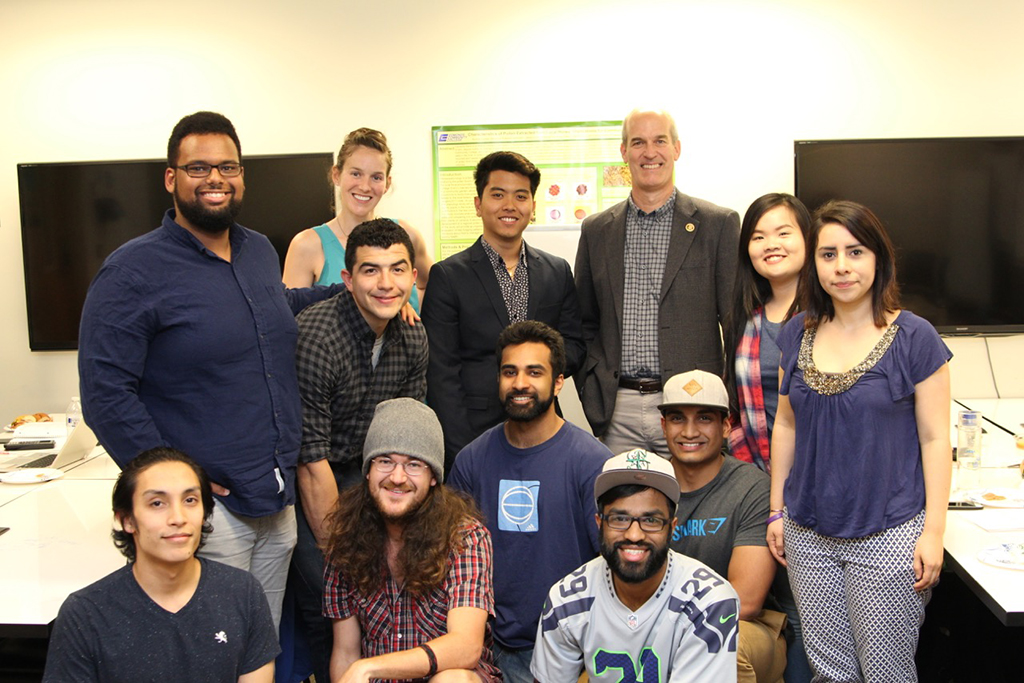By Assunta Ng
NORTHWEST ASIAN WEEKLY

MESA students who met with U.S. Representative Rick Larsen (Photo provided by Edmonds Community College)
Diversity is a broad word at Edmonds Community College (ECC). So diverse that it even covers former inmates.
With 46 percent being students of color (over 26 percent are Asian Pacific Islanders), ECC is one of the most diverse colleges in Washington state.
President Jean Hernandez said, “Given the current political climate, diversity shouldn’t just be focusing on ethnic backgrounds. Religious backgrounds and where people are coming from…” are part of this diverse community.
“It’s the many backgrounds that make us a stronger country,” she said.
To reach students of different needs, ECC offers programs and grants for gender-specific students, low-income students, first generation students going to college, as well as veterans. Currently, there are about 200 veteran students enrolled at ECC.
MESA
In 2010, MESA (Mathematics, Engineering, Science Achievement) was created at ECC to improve the low representation of women and people of color in the workplace of science and technology.
The traditionally underrepresented students in STEM fields, including Blacks, Native Americans, Hispanics, Pacific Islanders, and women, can take advantage of Washington MESA programs (funded by the National Science Foundation), so they can achieve their full potential and contribute in those fields.
Female faculty
It is not enough to have scholarships and programs to recruit females in their MESA programs. These students need a support system and role models to stay in the program.
Hernandez said ECC has made an effort to hire more female faculty, so female students can feel comfortable. It also provides a variety of classes, such as physics, mathematics, and chemistry.

MESA students visiting at the Fred Hutchinson Cancer Research Center. (Photo provided by Edmonds Community College)
Former inmates
One prisoner can cost taxpayers over $31,000 a year to feed, house, and guard, according to the Independent Budget Office report.
For individuals who have been incarcerated, there is no guarantee they won’t end up reoffending and going back behind bars. Since these former inmates have been absent from society, they need a lot of support to restart their life and be able to sustain a living.
Turning their lives around requires not only education, but housing and jobs. Working with the Department of Corrections, ECC is one of the few colleges which offer programs for former inmates. Hernandez said the immediate need is to improve their work skills so they can get better jobs.
Despite all the attractive scholarships, grants, and financial aid available, Hernandez said enrollment is declining by about 2 to 3 percent over the previous year. With the booming economy, community colleges are competing with job opportunities.
“The world of work is changing dramatically,” said Hernandez. “In the next five years, 60 percent of all jobs will require at least a two-year degree. My advice is take one or two college classes every quarter, and before you know it, you will finish your two-year degree and then continue on to your bachelor’s for those higher paying jobs.”
Assunta can be reached at assunta@nwasianweekly.com.



